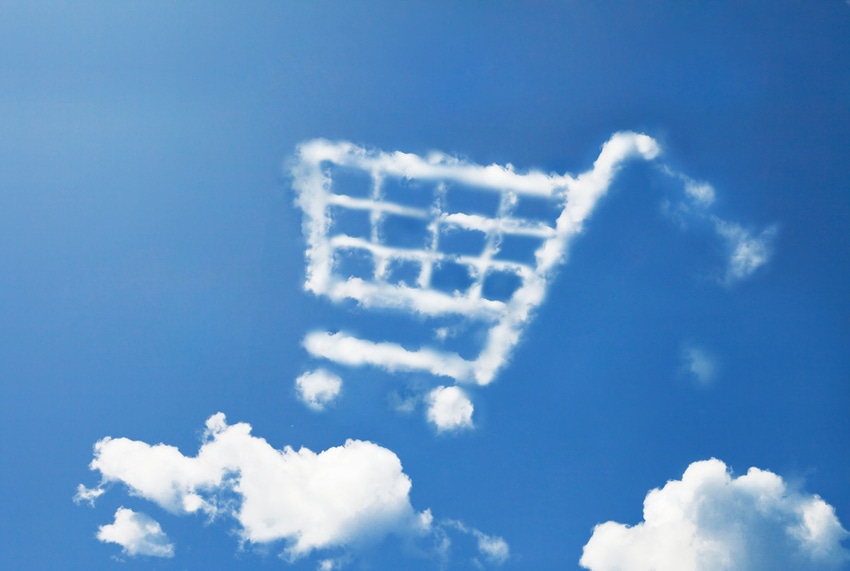The cloud providers hope to gain ground in an industry that is wary of giant competitor AWS.
January 16, 2019

Cloud service providers like Microsoft, Google and Oracle continue to court the retail industry, a market that not only is expected to aggressively expand its use of the public cloud, but also to look for partners other than Amazon Web Services, which is seen as a growing competitor with Amazon’s acquisition last year of Whole Foods and its growing chain of Amazon Go brick-and-mortar stores.
In recent weeks, AWS competitors have made strong pitches to large retailers through partnerships, products and promotions of how companies have benefited from the use of their technologies. Certainly part of that had to do with the National Retail Federation’s NRF 2019 show this week in New York City, a massive annual event for the retail industry. Cloud providers, however, also are aware that retail represents an opportunity to cut into AWS’ dominant position in the fast-growing cloud market.
Retailers view Amazon’s $13.7 billion Whole Foods purchase in 2017 and the launch of the highly automated Amazon Go stores – currently there are nine spread around Seattle, Chicago and San Francisco – as competitors that threaten to do to them what Amazon has done to book sellers. The cloud offers retailers a wide range of benefits both to improve the customer-service experience as well as back-office operations.

Enderle Group’s Rob Enderle
Given Amazon’s moves into retail, it makes sense that retailers would look for a cloud provider other than AWS, said Rob Enderle, principal analyst with The Enderle Group, even though the company holds about 34 percent of the market.
“It is a standard practice not to use services provided by competitors,” Enderle told Channel Futures. “This transcends industry and largely falls into one of the first things you learn as a manager.”
Microsoft Azure made a splash earlier this month when it announced an expansion of its partnership with giant grocery chain Kroger. In late 2017, Kroger executives said they planned to use both Azure and Google Cloud platforms for their e-commerce and digital workloads, an announcement that came only months after AWS’ Whole Foods deal. This month, Azure and Kroger unveiled plans to leverage technology created by Kroger and powered by Azure to drive a highly connected experience for in-store customers.
In addition, they will market their retail-as-a-service (RaaS) product to the rest of the industry.

Google Cloud’s Scotch Scocimara
In a blog this week, Google Cloud officials noted some of the ways retailers like Ulta Beauty, shoe company DSW and cosmetics brand Lush are leveraging their cloud services to improve data analysis, use machine learning and artificial intelligence, and scale their infrastructure to meet demand. In another blog, Scotch Scocimara, senior director of cloud support for Google, outlined how the cloud provider was able to help customers during the holiday season’s Black Friday and Cyber Monday sales rushes, which combined had a total of more than $12.1 billion in online sales.
“Traffic to retailers’ mobile and shopping apps surges to levels unmatched during the rest of the year, and availability or scalability issues can result in millions of dollars of lost sales,” Scocimara wrote. “Every year, there are well-publicized retail website crashes, so avoiding downtime – along with the accompanying reputation damage, unhappy customers and stressed, overworked IT teams – is particularly important for retailers.”
At the NRF show, Oracle Cloud launched the Oracle Retail Xstore Office Cloud Service, designed to enable retailers to move much of their back-office operations into the cloud. Migrating operations to the cloud will eliminate the need to invest in data-center infrastructure while accelerating implementations and providing flexibility to adapt to changing customer needs, they said. It also enables them to …
… keep a strong customer point-of-service presence on premises.
Oracle also updated its Oracle Retail Omnichannel portfolio of solutions and cloud services.
The cloud is a natural fit for retailers looking for ways to grow in a competitive industry, says Enderle.
“Retailers are used to outsourcing much of anything that doesn’t have directly to do with retail,” the analyst said. “This allows them to gain economies of scale and compete with larger players as well as focus on what it is they do best.”
He added that it’s also impacting the channel’s role in retail, saying that the “channel remains both important and in flux. Channel is how you get your goods to the customer, but that now is changing and staying focused on the business, rather than parts of it not related directly to that business.”
Some of those areas, like IT, remain an industry best practice, Enderle said.
The use of the cloud in retail is expected to continue growing quickly. In a blog in late 2017, Dhaval Kate, a senior analyst at MarketsandMarkets, wrote that the global retail market will hit more than $28.5 billion by 2021, growing at almost 21 percent annually.
“Cloud computing in the retail industry enables real-time access to all operational and financial data across businesses, improving effectiveness, reducing expenses and enabling better business decisions,” Kate wrote. “The key areas where cloud computing is influencing the retail industry are channel operations, merchandising and marketing, supply chain, and sales and support.”
About the Author(s)
You May Also Like


